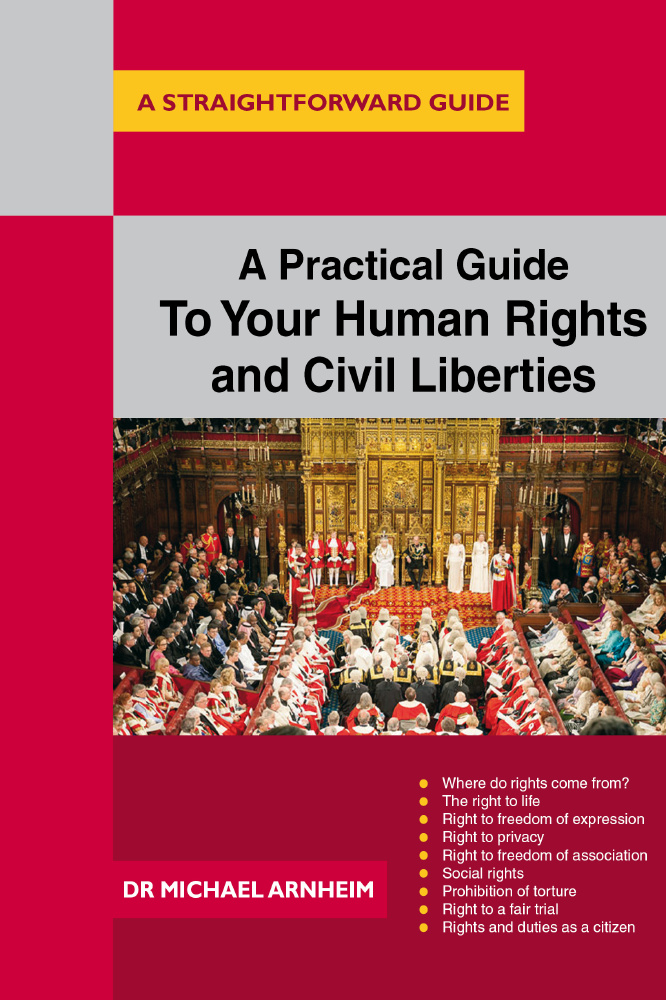Human rights might not be the first thing that spring to mind when considering everyday worries.

A Practical Guide To Your Human Rights And Civil Liberties
But, as new book A Practical Guide to Your Human Rights and Civil Liberties explains, post-Brexit, people in the UK citizens need to be extra-vigilant of their rights, their relationship with the powers that be, and how these may be affected once we leave the European Union.
Written by respected Human Rights barrister and prolific author Dr Michael Arnheim, this go-to guide discusses the whole span of our human rights and liberties, including those that can often be ignored or misinterpreted.
The first chapter outlines where British citizens’ rights actually come from, including the Magna Carta – which celebrated its 800th anniversary in 2015 – and Common Law acts, as well as the powers held under acts of Parliament and the European Convention on Human Rights (ECHR).
The second chapter, “A Fistful of Fallacies”, exposes what the author describes as a “politically correct” hype surrounding human rights law and how UK judges often pander to their own agendas.
The remaining chapters address specific rights which we, as citizens, can expect to enjoy including the Right to Life, the Right to Freedom of Expression, the Right to a Fair Trial and the Right to Privacy.
Arnheim pointedly notes that these rights are also often called upon in the defence of terror suspects, illegal immigrants and even convicted killers at the expense of law-abiding members of society.
From time to time the use of human rights law in these circumstances leads to a public backlash, often stirred up by the national press, and the author addresses this, asking, for instance, in what circumstances can a convicted killer be given lifelong anonymity to protect their lives and is such a grant justifiable?
With regard to Freedom of Expression, the book also questions its limits. What rights do you have against someone who attacks you in print or on the internet? Do you have a right of reply in a newspaper that has done the same?
And what of the Right to Freedom of Religion? There have been cases of Christians who’ve been forbidden from wearing a cross at work, or business owners who have been found guilty of discriminating against people over a perceived conflict with their faith.
The book is worth the price alone for helping shed light on the legal realities and arguments on either side that come into play with these sorts of knotty, headline-grabbing cases.
It also discusses a person’s social rights, such as the right to marry and have an education, and also our duties as citizens, such as being able to stand for election and to petition.
While this is more the sort of book to dip into rather than read chapter by chapter, it will help readers become more informed, and also equipped to handle themselves if for any reason they find their own human rights challenged or are accused of breaching the rights of someone else.
Arnheim, a Sometime Fellow of St John’s College, Cambridge, and the author of 19 books including two previous titles on human rights, never dumbs down his subject but his straight-talking approach, and handy explanations of key legal terms, makes for a headache-free, and often fascinating, resource.
A Practical Guide to your Human Rights and Civil Liberties by Dr Michael Arnheim (Straightforward Publishing) is available now in paperback, priced £10.99, and as an eBook priced £4.99. Visit www.straightforwardco.co.uk

